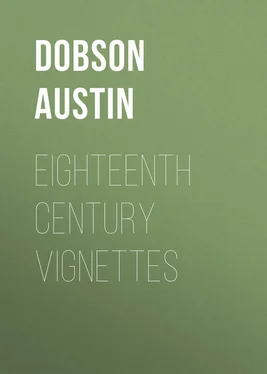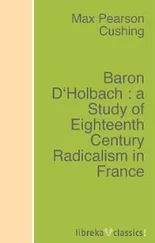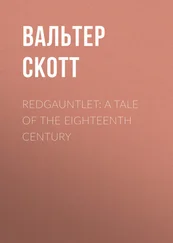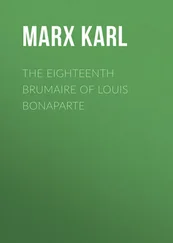Austin Dobson - Eighteenth Century Vignettes
Здесь есть возможность читать онлайн «Austin Dobson - Eighteenth Century Vignettes» — ознакомительный отрывок электронной книги совершенно бесплатно, а после прочтения отрывка купить полную версию. В некоторых случаях можно слушать аудио, скачать через торрент в формате fb2 и присутствует краткое содержание. Жанр: foreign_antique, foreign_prose, на английском языке. Описание произведения, (предисловие) а так же отзывы посетителей доступны на портале библиотеки ЛибКат.
- Название:Eighteenth Century Vignettes
- Автор:
- Жанр:
- Год:неизвестен
- ISBN:нет данных
- Рейтинг книги:5 / 5. Голосов: 1
-
Избранное:Добавить в избранное
- Отзывы:
-
Ваша оценка:
- 100
- 1
- 2
- 3
- 4
- 5
Eighteenth Century Vignettes: краткое содержание, описание и аннотация
Предлагаем к чтению аннотацию, описание, краткое содержание или предисловие (зависит от того, что написал сам автор книги «Eighteenth Century Vignettes»). Если вы не нашли необходимую информацию о книге — напишите в комментариях, мы постараемся отыскать её.
Eighteenth Century Vignettes — читать онлайн ознакомительный отрывок
Ниже представлен текст книги, разбитый по страницам. Система сохранения места последней прочитанной страницы, позволяет с удобством читать онлайн бесплатно книгу «Eighteenth Century Vignettes», без необходимости каждый раз заново искать на чём Вы остановились. Поставьте закладку, и сможете в любой момент перейти на страницу, на которой закончили чтение.
Интервал:
Закладка:
How she obtained her education, the scanty records of her life do not disclose. But it is clear that she had considerable attainments; and she obviously added to them a faculty for ingenious flattery, which, after the fashion of that day, she exhibited in her books. In her best effort, 'The Female Quixote,' there is a handsome reference to that 'admirable Writer,' Mr. Richardson; and Johnson is styled 'the greatest Genius in the present Age.' 'Rail,' she makes one of her characters say elsewhere, and painfully à-propos de bottes , – 'Rail with premeditated Malice at the "Rambler;" and for the want of Faults, turn even its inimitable Beauties into Ridicule: The Language, because it reaches to Perfection, may be called stiff, laboured, and pedantic; the Criticisms, when they let in more light than your weak Judgment can bear, superficial and ostentatious Glitter; and because those Papers contain the finest System of Ethics yet extant, damn the queer Fellow, for over-propping Virtue;' – in all of which, it is to be feared, the bigots of this iron time will see nothing but the rankest logrolling. Yet it was not to Mrs. Lenox that Johnson said, 'Madam, consider what your praise is worth.' On the contrary, if Dr. Birkbeck Hill conjectures rightly, he wrote a not unfavourable little notice of the book in the 'Gentleman's Magazine' for March, 1752, – a notice, which, if it does no more, at least compactly summarises the scheme of the story.
'Arabella,' it says (the full title is 'The Female Quixote; or, the Adventures of Arabella'), 'is the daughter of a statesman, born after his retirement in disgrace, and educated in solitude, at his castle, in a remote province. The romances which she found in the library after her mother's death, were almost the only books she had read; from these therefore she derived her ideas of life; she believed the business of the world to be love, every incident to be the beginning of an adventure, and every stranger a knight in disguise. The solemn manner in which she treats the most common and trivial occurrences, the romantic expectations she forms, and the absurdities which she commits herself, and produces in others, afford a most entertaining series of circumstances and events.' And then he goes on to quote, as coming from one equally 'emulous of Cervantes, and jealous of a rival,' the opinion which Mr. Fielding had expressed a few days earlier, in his 'Covent Garden Journal,' – an opinion which, if, as Johnson asserts, he had at this time no knowledge of the author of the book, does even more credit to his generosity than to his critical judgment. For the author of | Tom Jones' not only devotes rather more than two handsome columns to 'The Female Quixote;' but, professing to give his report of it 'with no less Sincerity than Candour,' gravely proceeds to show in what it falls short of, in what it equals, and in what it excels (!) the master-piece of which it is a professed imitation. According to him, the advantage of Mrs. Lenox in the last respect (for the others may be neglected) lies in the fact that it is more probable that the reading of romances would turn the head of a young lady than the head of an old gentleman; that the character of Arabella is more endearing than that of Don Quixote; that her situation is more interesting; and that the incidents of her story, as well as the story itself, are less 'extravagant and incredible' than those of the immortal hero of Cervantes. Finally, he sums up with the words which Johnson afterwards reproduced, in part, in the 'Gentleman's Magazine:' 'I do very earnestly recommend it, as a most extraordinary and most excellent Performance. It is indeed a Work of true Humour, and cannot fail of giving a rational, as well as very pleasing Amusement to a sensible Reader, who will at once be instructed and very highly diverted. Some Faults perhaps there may be, but these all leave the unpleasing Task of pointing them out to those who will have more Pleasure in the Office. This Caution, however, I think proper to premise, that no Persons presume to find many [He is speaking in his assumed character of Censor of Great Britain]. For if they do, I promise them the Critic and not the Author will be to blame.'
Pro captu lectoris habent sua fata libelli . In spite of the verdict of Johnson and Fielding, – that is to say, in spite of the verdict of the Macaulay and Thackeray of the Eighteenth Century, – the Critic, it is to be feared, must be blamed to-day. Were Fielding alone, one might discount his opinion by assuming that he would naturally welcome a work of art which was on his side rather than on that of Richardson; but this would not account for the equally favourable opinion of Johnson. 11 11 Johnson had, if not a taste, at least an appetite, for the old-fashioned romances which Mrs. Lenox satirised. Once, at Bishop Percy's, he selected 'Fenxmarte of Hircania' (in folio) for his habitual reading, and he read it through religiously. Upon another occasion his choice fell upon Burke's favourite, 'Palmerin of England.' 'History as She is wrote' in 'Clelia' and 'Cleopatra;' the persistence of Arabella in finding princes in gardeners, and rescuers in highwaymen – are things not ill-invented. But repeated they pall; and not all the insistence upon her natural good sense and her personal charms, nor (as compared with such concurrent efforts as Mrs. Eliza Haywood's 'Betsy Thoughtless')
Nor could it be laid entirely to the novelty of the attempt, for 'Tom Jones' and 'Clarissa' and 'Peregrine Pickle,' masterpieces all, had by this time been written, and can still be read, which it is difficult to say of 'The Female Quixote; or, the Adventures of Arabella.' Mrs. Lenox's fundamental idea, no doubt, is a good one, although the character of the heroine has its feminine prototypes in the 'Précieuses Ridicules' of Molière and the Biddy Tipkin of Steele's 'Tender Husband.' It may be conceded, too, that some of the manifold complications which arise from her bringing every incident of her career to the touchstone of the high-falutin' romances of the Sieur de la Calprenède, and that 'grave and virtuous virgin,' Madeleine de Scudéry, are diverting enough. The lamentable predicament of the lover, Mr. Glanville, who is convicted of imperfect application to the pages of 'Cassandra,' by his hopeless ignorance of the elementary fact that the Orontes and Oroondates of that performance are one and the same person; the case of the luckless dipper into Thucydides and Herodotus at Bath who is confronted, to his utter discomfiture, with the inoffensive tone of the book itself, can reconcile us to a heroine who is unable to pass the sugar-tongs without a reference to Parisatis, Princess of Persia, or Cleobuline, Princess of Corinth; – who holds with the illustrious Mandana that, even after ten years of the most faithful services and concealed torments, it is still presumptuous for a monarch to aspire to her hand; – and who, upon the slightest provocation, plunges into tirades of this sort: 'Had you persevered in your Affection, and continued your Pursuit of that Fair-one, you would, perhaps, ere this, have found her sleeping under the Shade of a Tree in some lone Forest, as Philodaspes did his admirable Delia , or disguised in a Slave's Habit, as Ariobarsanes saw his Divine Olympia ; or bound haply in a Chariot, and have had the Glory of freeing her, as Ambriomer did the beauteous Agione ; or in a Ship in the Hands of Pirates, like the incomparable Eliza ; or' – at which point she is fortunately interrupted. In another place she fancies her uncle is in love with her, and thereupon, 'wiping some Tears from her fine Eyes,' apostrophises that elderly and astounded relative in this wise – 'Go then, unfortunate and lamented Uncle; go, and endeavour by Reason and Absence to recover thy Repose; and be assured, whenever you can convince me you have triumphed over these Sentiments which now cause both our Unhappiness, you shall have no Cause to complain of my Conduct towards you.' There is an air of unreality about all this, which, one would think, should have impeded its popularity in its own day. In the Spain of Don Quixote it is conceivable; it is intolerable in the England of Arabella. But there are other reasons which help to account for the oblivion into which the book has fallen. One is, that by neglecting to preserve the atmosphere of the age in which it was written, it has missed an element of vitality which is retained even by such fugitive efforts as Coventry's 'Pompey the Little.' 12 12 This, like 'Betsy Thoughtless,' belongs to 1751.
Интервал:
Закладка:
Похожие книги на «Eighteenth Century Vignettes»
Представляем Вашему вниманию похожие книги на «Eighteenth Century Vignettes» списком для выбора. Мы отобрали схожую по названию и смыслу литературу в надежде предоставить читателям больше вариантов отыскать новые, интересные, ещё непрочитанные произведения.
Обсуждение, отзывы о книге «Eighteenth Century Vignettes» и просто собственные мнения читателей. Оставьте ваши комментарии, напишите, что Вы думаете о произведении, его смысле или главных героях. Укажите что конкретно понравилось, а что нет, и почему Вы так считаете.












